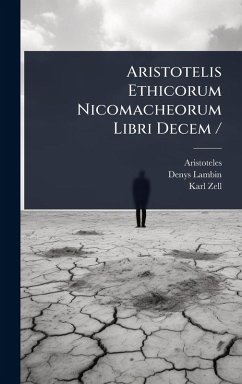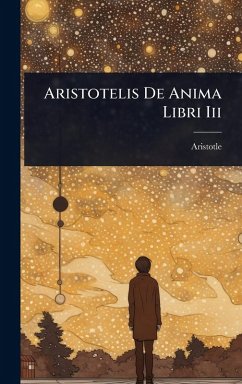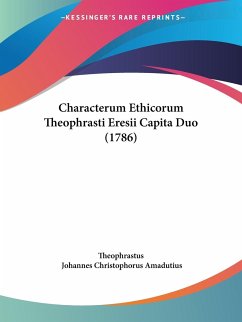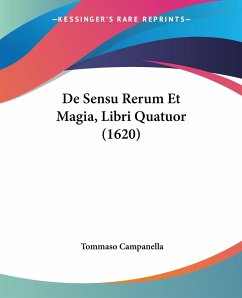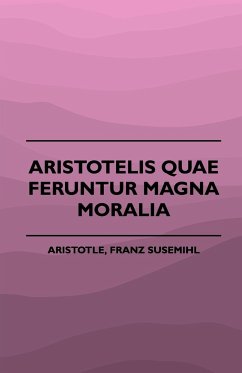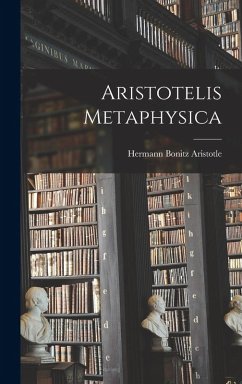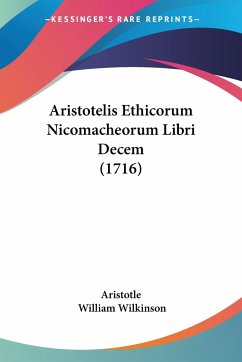
Aristotelis Ethicorum Nicomacheorum Libri Decem (1716)
Versandkostenfrei!
Versandfertig in 1-2 Wochen
39,99 €
inkl. MwSt.

PAYBACK Punkte
20 °P sammeln!
Aristotelis Ethicorum Nicomacheorum Libri Decem est opus philosophicum, quod auctore Aristotele scriptum est. In hoc libro, Aristoteles de virtute et felicitate hominum disputat. Libri Decem habent multas partes, quae omnes de vita humana tractant, et quae omnes ad felicitatem hominum pertinent. In libris his, Aristoteles de virtutibus moralibus et intellectualibus, de amicitia, de iustitia, de magnanimitate, de modestia, de praeceptis et de habitibus loquitur. Aristoteles in hoc libro etiam de felicitate loquitur, quae est finis ultimus vitae humanae. Aristoteles in hac obra multa de vita hum...
Aristotelis Ethicorum Nicomacheorum Libri Decem est opus philosophicum, quod auctore Aristotele scriptum est. In hoc libro, Aristoteles de virtute et felicitate hominum disputat. Libri Decem habent multas partes, quae omnes de vita humana tractant, et quae omnes ad felicitatem hominum pertinent. In libris his, Aristoteles de virtutibus moralibus et intellectualibus, de amicitia, de iustitia, de magnanimitate, de modestia, de praeceptis et de habitibus loquitur. Aristoteles in hoc libro etiam de felicitate loquitur, quae est finis ultimus vitae humanae. Aristoteles in hac obra multa de vita humana et de virtutibus loquitur, quae adhuc valent et quae adhuc a philosophis discuntur.This scarce antiquarian book is a facsimile reprint of the old original and may contain some imperfections such as library marks and notations. Because we believe this work is culturally important, we have made it available as part of our commitment for protecting, preserving, and promoting the world's literature in affordable, high quality, modern editions, that are true to their original work.



